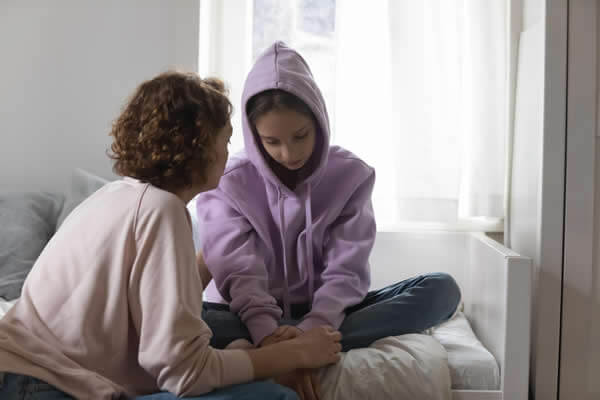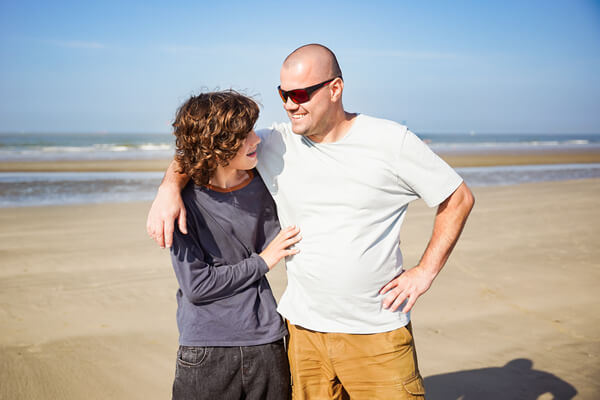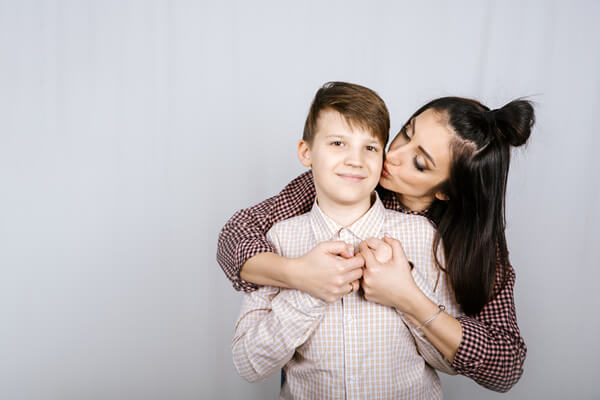4 Tips For How To Talk To Your Children About The UVA Shooting
As a child psychologist, I mainly address the developmental, emotional, social and behavioral struggles of children, but sometimes the realities of the world enter the therapy space — events that are outside a child’s control and are upsetting. And, the recent tragic shooting at the University of Virginia has been upsetting to so many children (older and younger) and parents in our community.
Several of the teens I see have shared their concerns with me asserting, “I was going to apply to UVA next year,” and “Do you think that could happen at Mason?” and “If UVA isn’t safe, where is it safe?” and “My best friend is there, and she came home.” Even a few of my middle school students have expressed upset over the shooting, one of whom bravely declared, “My teacher is very strong, and we’ve practiced the safety drill, so we’re ready.”
Although my sampling is small as a clinician in private practice, UVA is only a few hours away from Northern Virginia, and its close proximity makes it all the more real. I imagine that there are a number of children throughout Virginia, especially those closer to Charlottesville, who are also very upset about what just occurred.
So, what’s the best approach to this sort of moment as a parent? While some parents will want to overprotect their child from upsetting events like this, others may feel that their child should know as much as possible about what’s happened. Every family is unique, and I offer the following 4 tips to consider when speaking to your child about the UVA shooting:
- Check your anxiety level before talking to your children about the shooting. Children can be very perceptive to how their parents are feeling, so make sure you are calm, reassuring and confident if and when you choose to discuss upsetting topics like this with them. Demonstrating to your children your willingness to talk about the shooting openly, and your interest in their thoughts and feelings on the topic, should serve to support them to address their concerns and fears and questions with you.
- Consider your audience. Regardless of the concerning or upsetting information we as parents receive via the media, we must always be mindful of what our children are capable of handling before discussing things. Thus, your child’s age, maturity level and threshold for worry/anxiety are all things to consider before discussing the UVA shooting. Just as you would not discuss tragic natural disasters or death in the same way with 4-, 9- or 18-year-old children because of developmental differences, you would not do the same for this topic with your children of varying ages. In my opinion, parents should shield children 5 and younger altogether from complex and upsetting topics. Parents should also alert older siblings to watch what they say around their younger brothers or sisters.
- Teach your children about the shooting and listen well. By educating your children about school shootings, they will understand things better, which in turn will serve to decrease their anxiety. It’s important to be clear and accurate with the information you share and keep your points and message simple. With teens getting ready to leave for college, for instance, you could point out to them that school shootings are actually rare. In 2021, there was reportedly one school shooting death for every twenty three million Americans. Moreover, child mortality data has shown that children are far more likely to be killed in an automobile accident or to drown; and, yet we don’t over focus on the dangers of highway deaths or swimming deaths with our children. Of course one shooting alone is a horrible thing, but my point here is that the 24 hour news cycle and social media can get us all worked up fast with upsetting topics like this. For a younger child, you can also discuss how rare school shootings are, and simply introducing the concepts of mental illness or good vs. evil is a way to help the child begin to understand why people sometimes do bad things in the world.When talking to your children about the UVA shooting, you also want to listen closely to them – what they think and feel about school shootings – and support them as needed. A younger child may actually need help to find words for what he or she feels (e.g., confusion, fear) as you support him or her to take greater control of their experience. Also, asking your younger child about his or her safety plan at school, and reassuring him or her, may also serve to give them a greater sense of emotional security.
- Minimize your children’s exposure to the media. Turn off the news! News agencies tend to sensationalize stories like this with updates and commentary, and while this event is certainly newsworthy, such widespread exposure can cause increased anxiety for our children.
Anxiety as a reaction to uncontrollable external events such as the UVA shooting is understandable inasmuch as the need for safety and security is a very real human and universal need; that need is even more immediate for younger children who don’t possess the internal resources — intellectual or emotional — to understand, make sense of or tolerate complex topics such as school shootings.
And while life events are beyond our control, as parents we have a duty to protect and inform our children when bad things happen in the world. If you choose to talk to your children about the shooting, remember that informing them (age appropriately), listening closely to them (i.e. their fears, concerns and questions) and clarifying and supporting them, is what’s best. If your child hasn’t heard about the UVA shooting, or has and doesn’t appear to have any concerns or questions, you may not want to spend much time on the topic or discuss it at all.








Michael Oberschneider, Psy.D. “Dr. Mike” is a clinical psychologist in private practice.
He can be reached at 703-723-2999, and is located at 44095 Pipeline Plaza, Suite 240, Ashburn.
